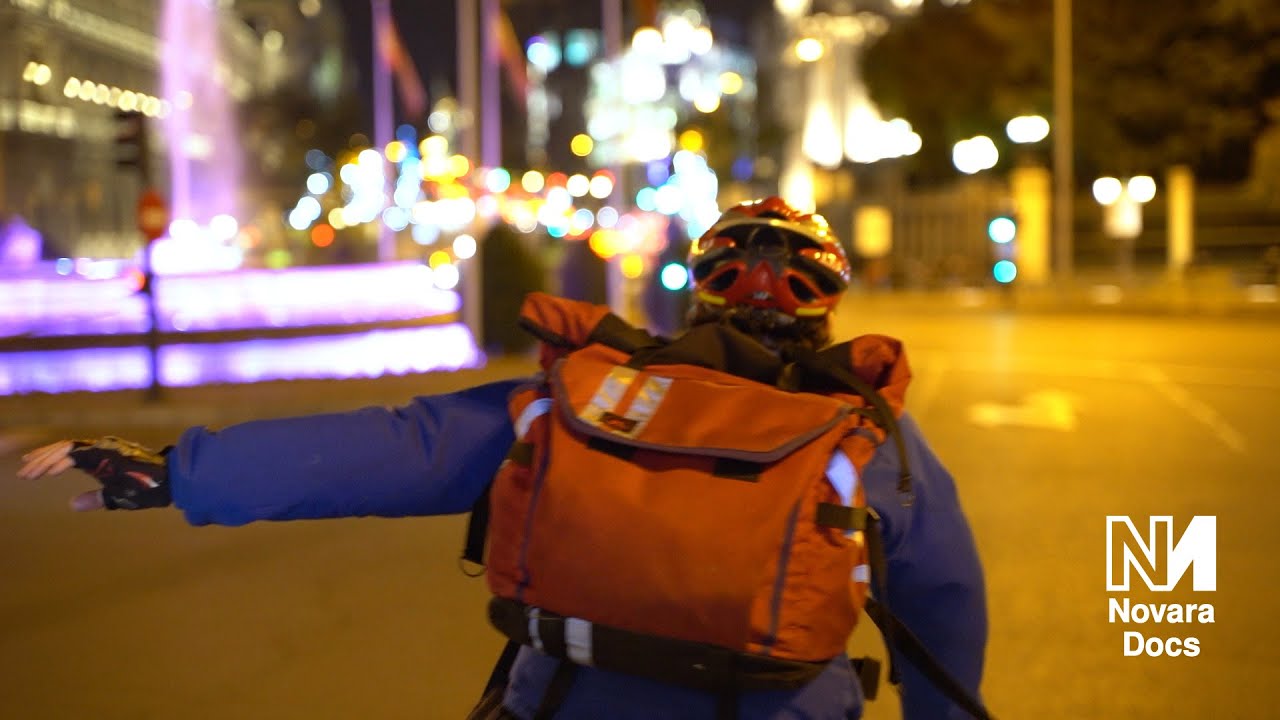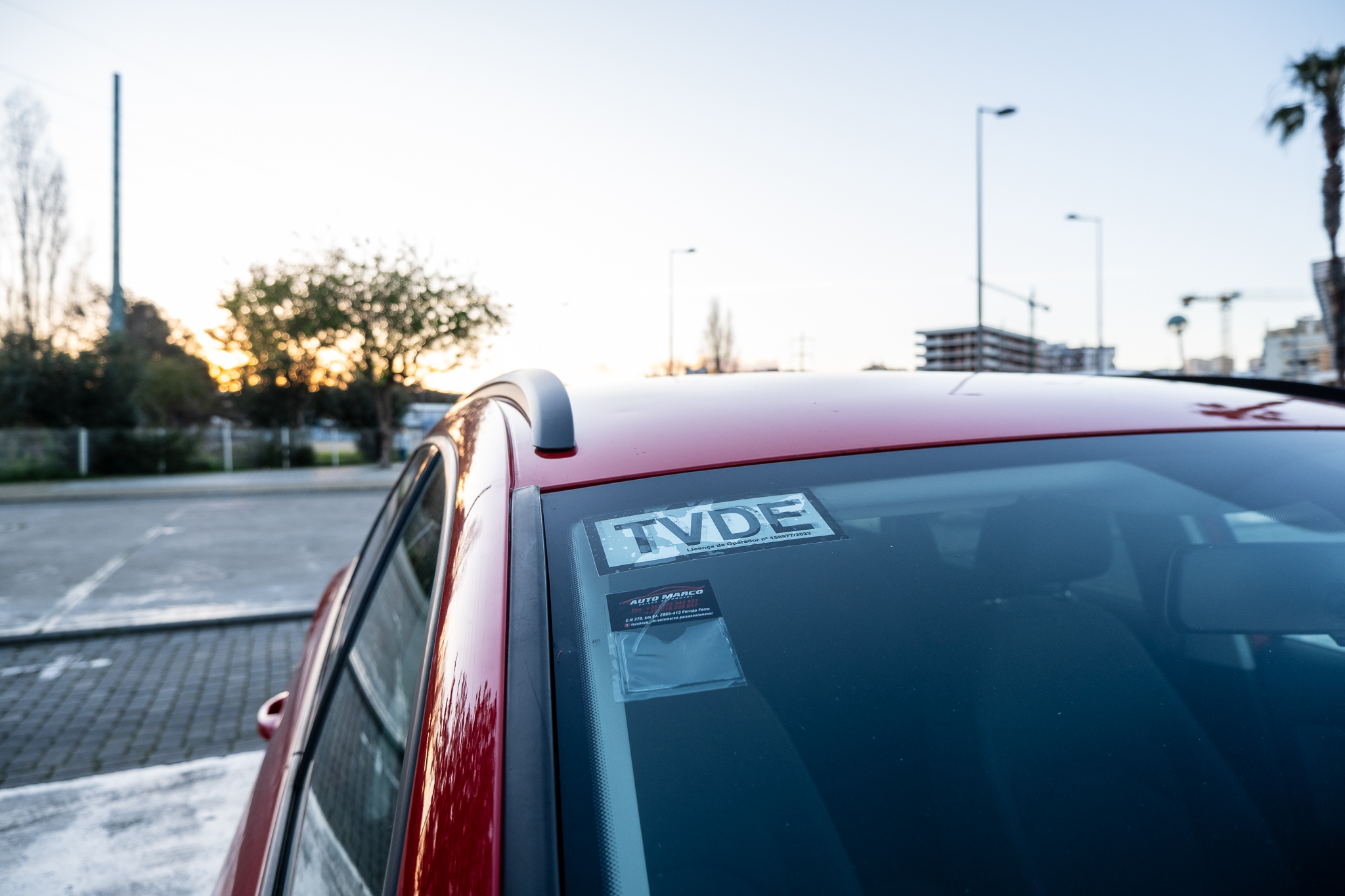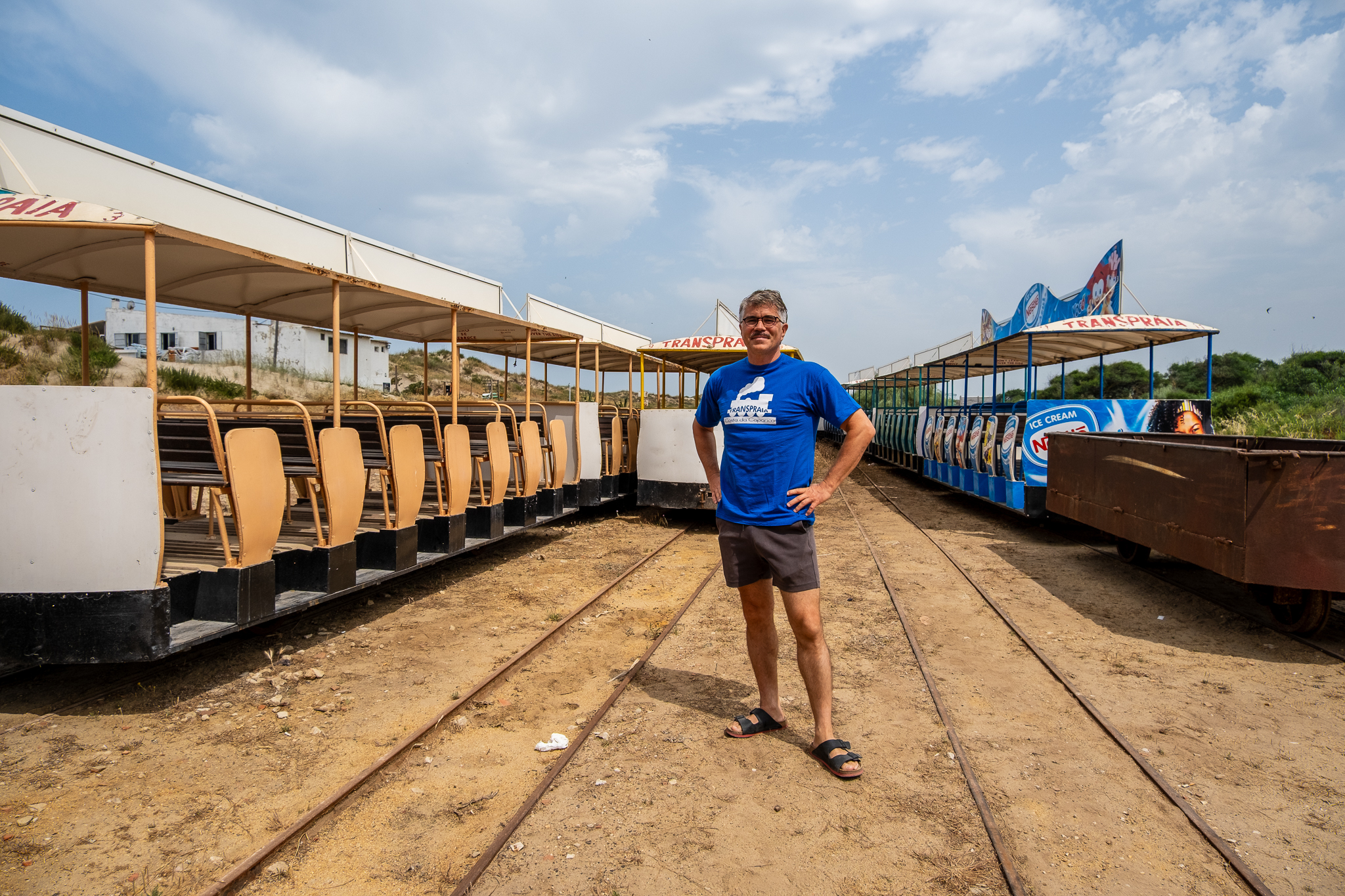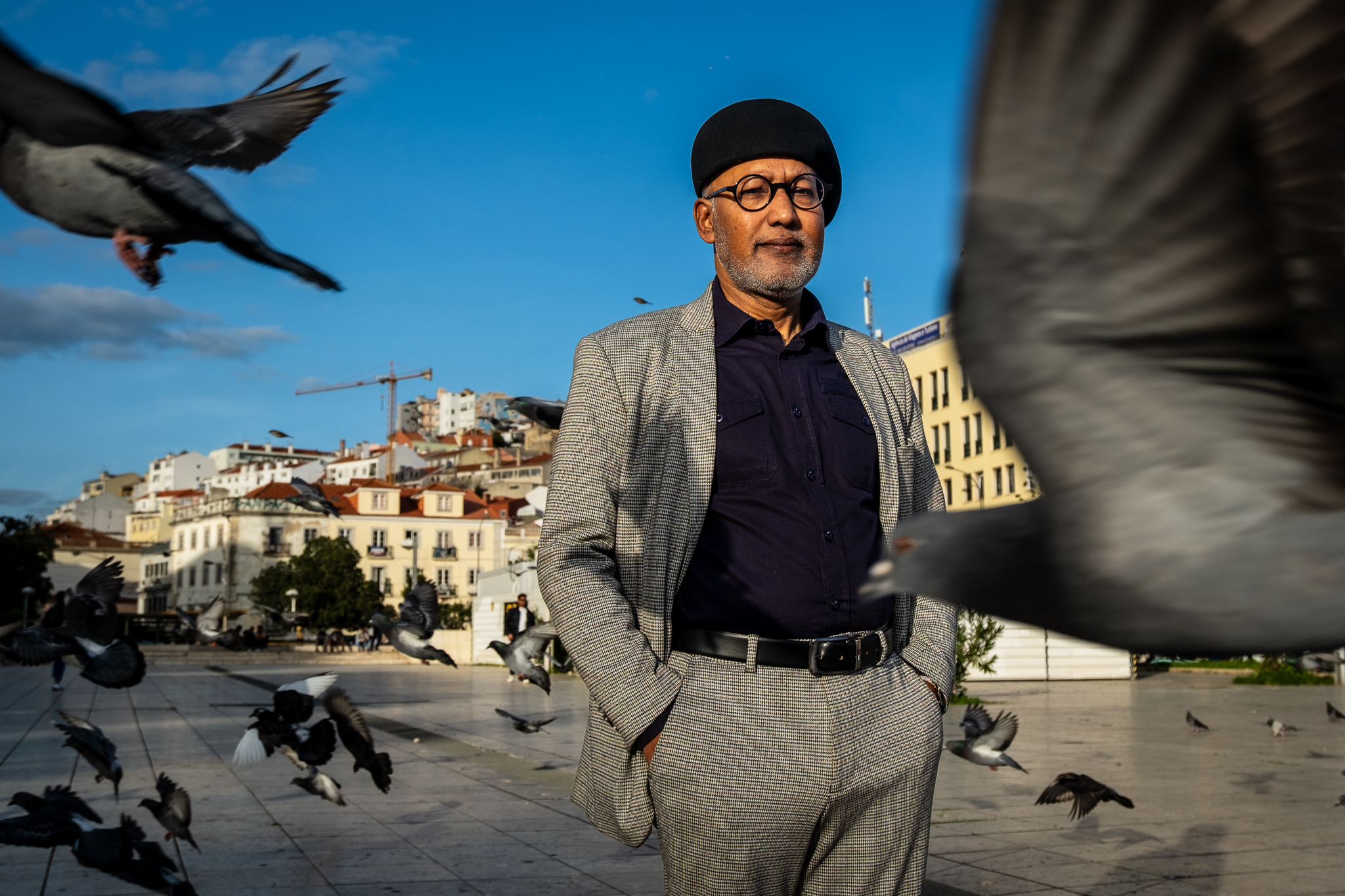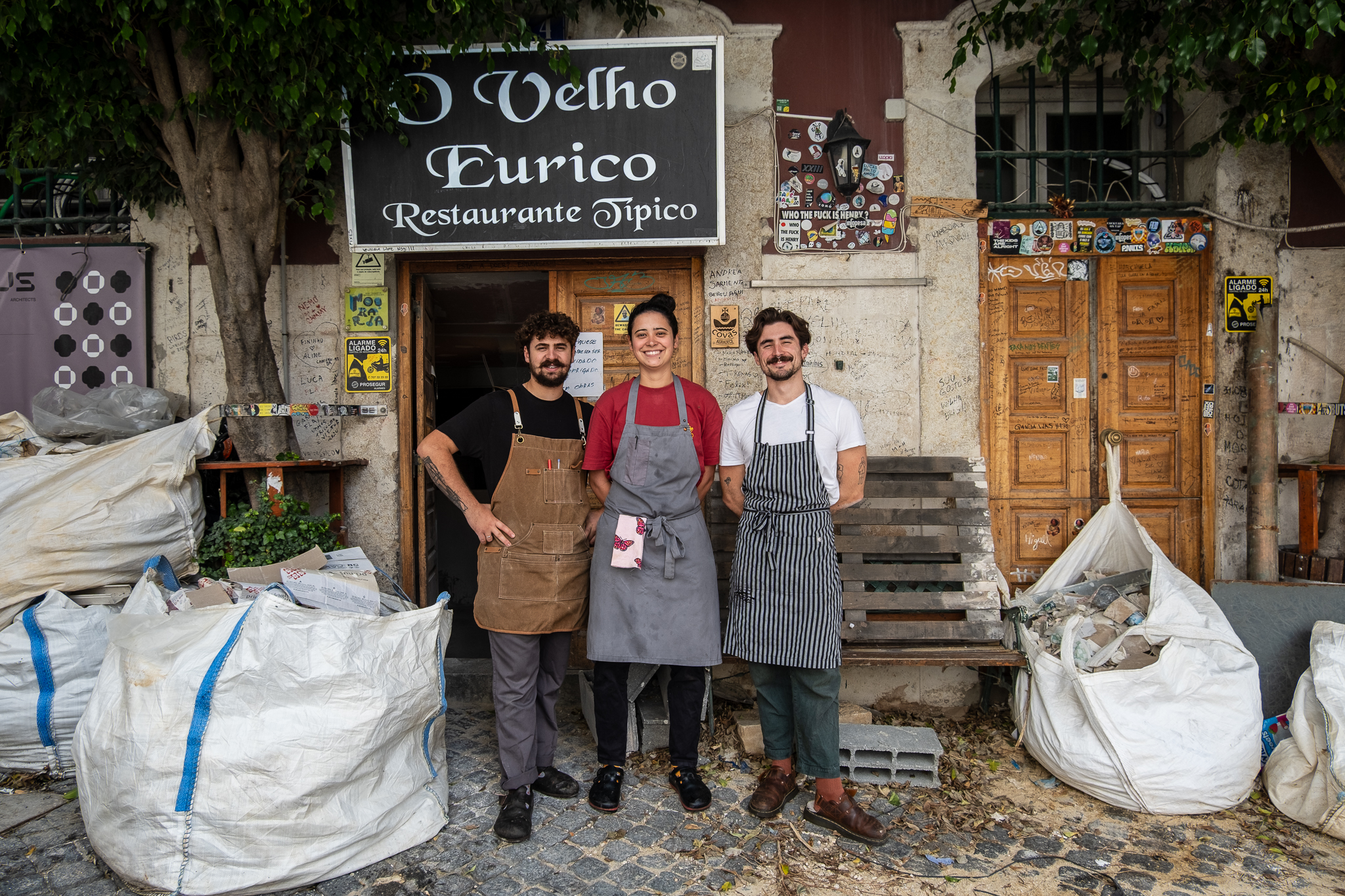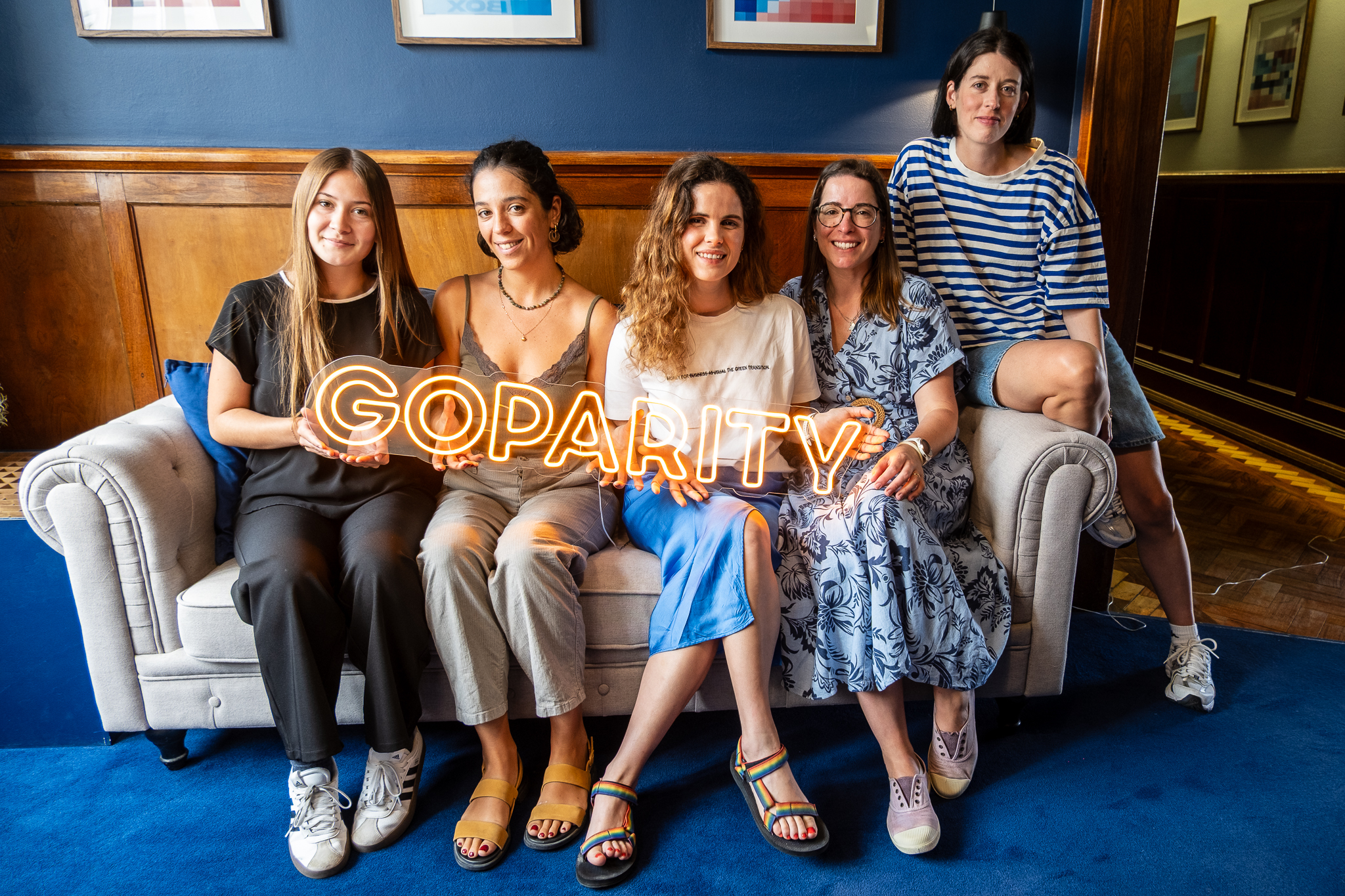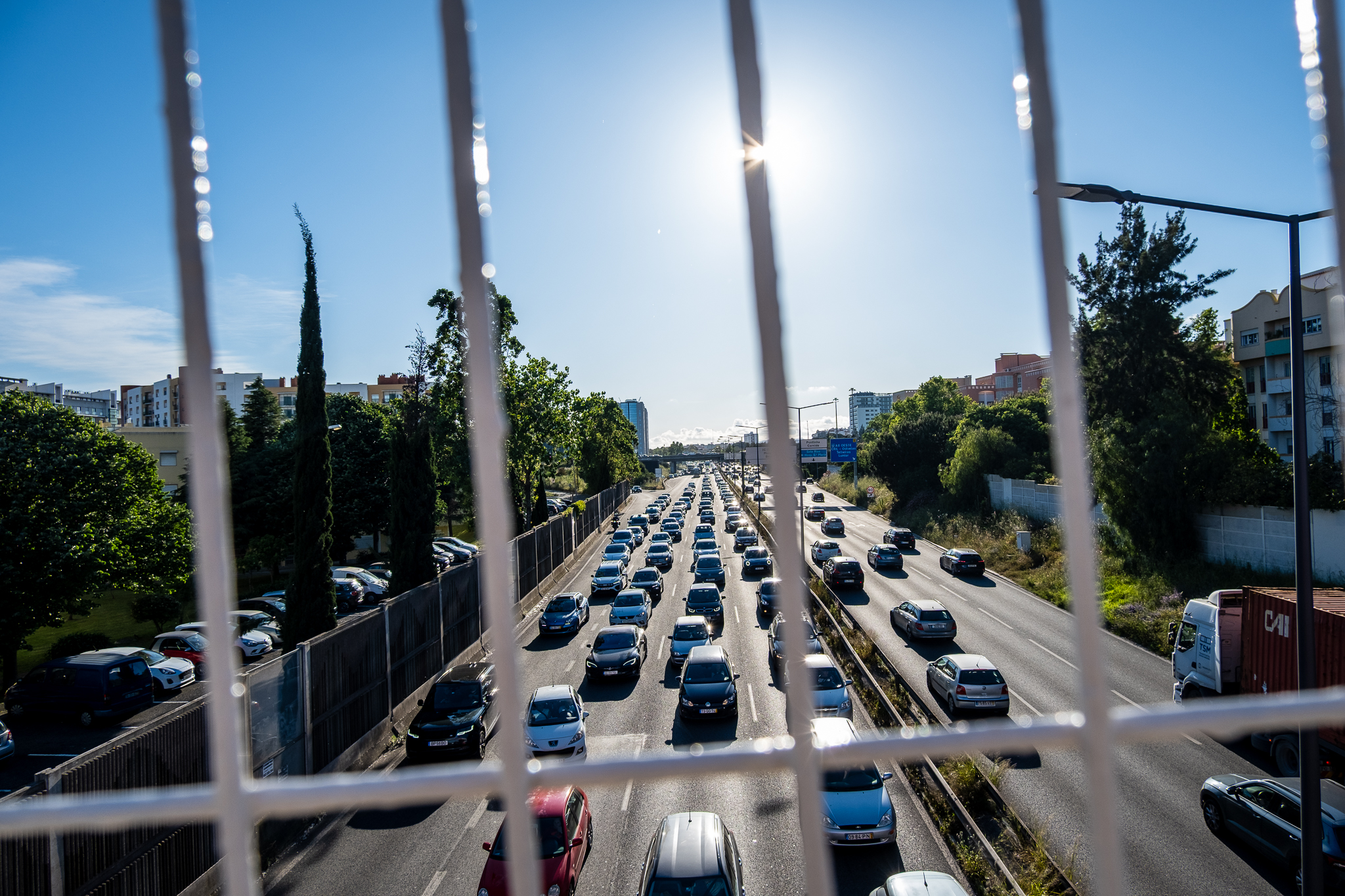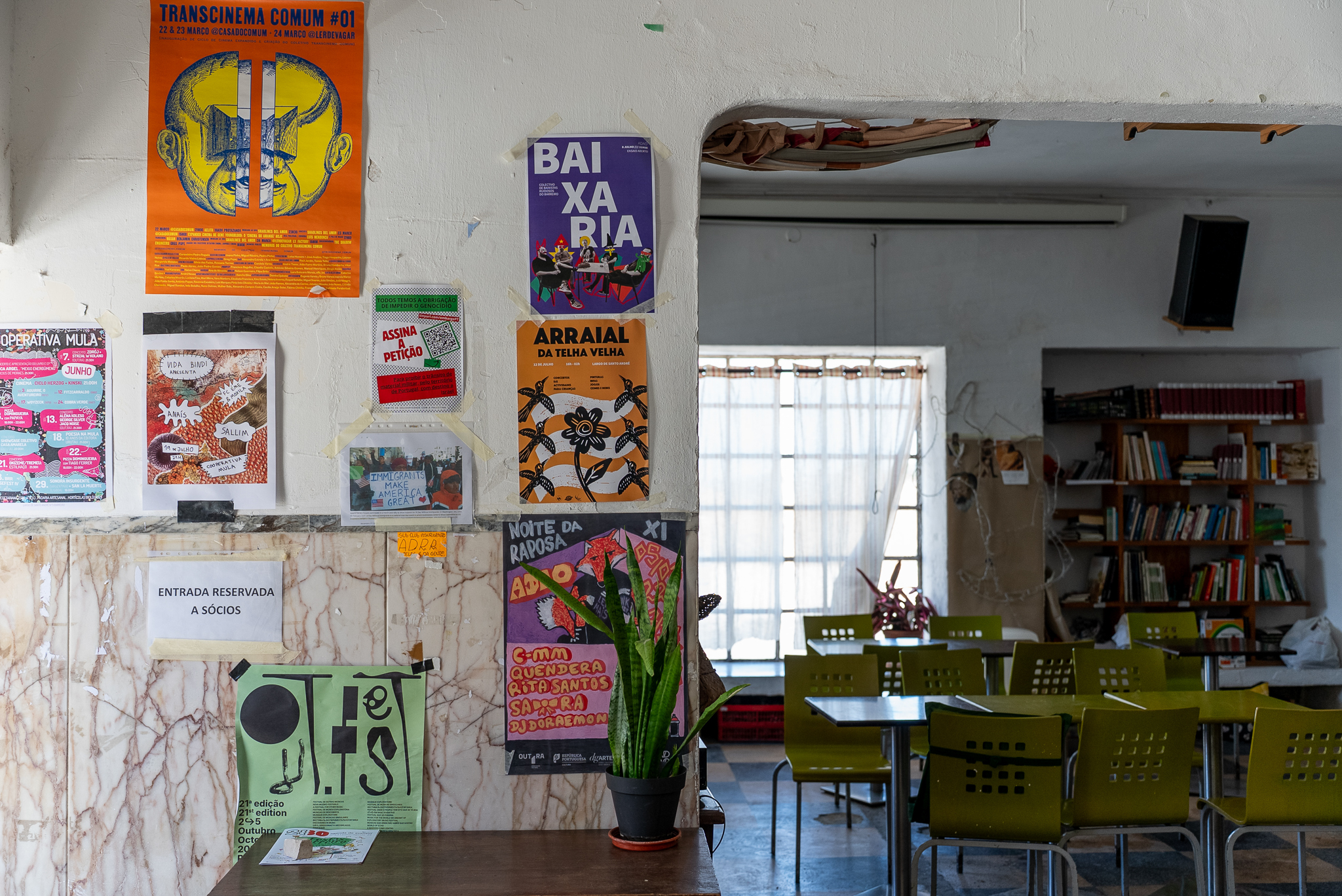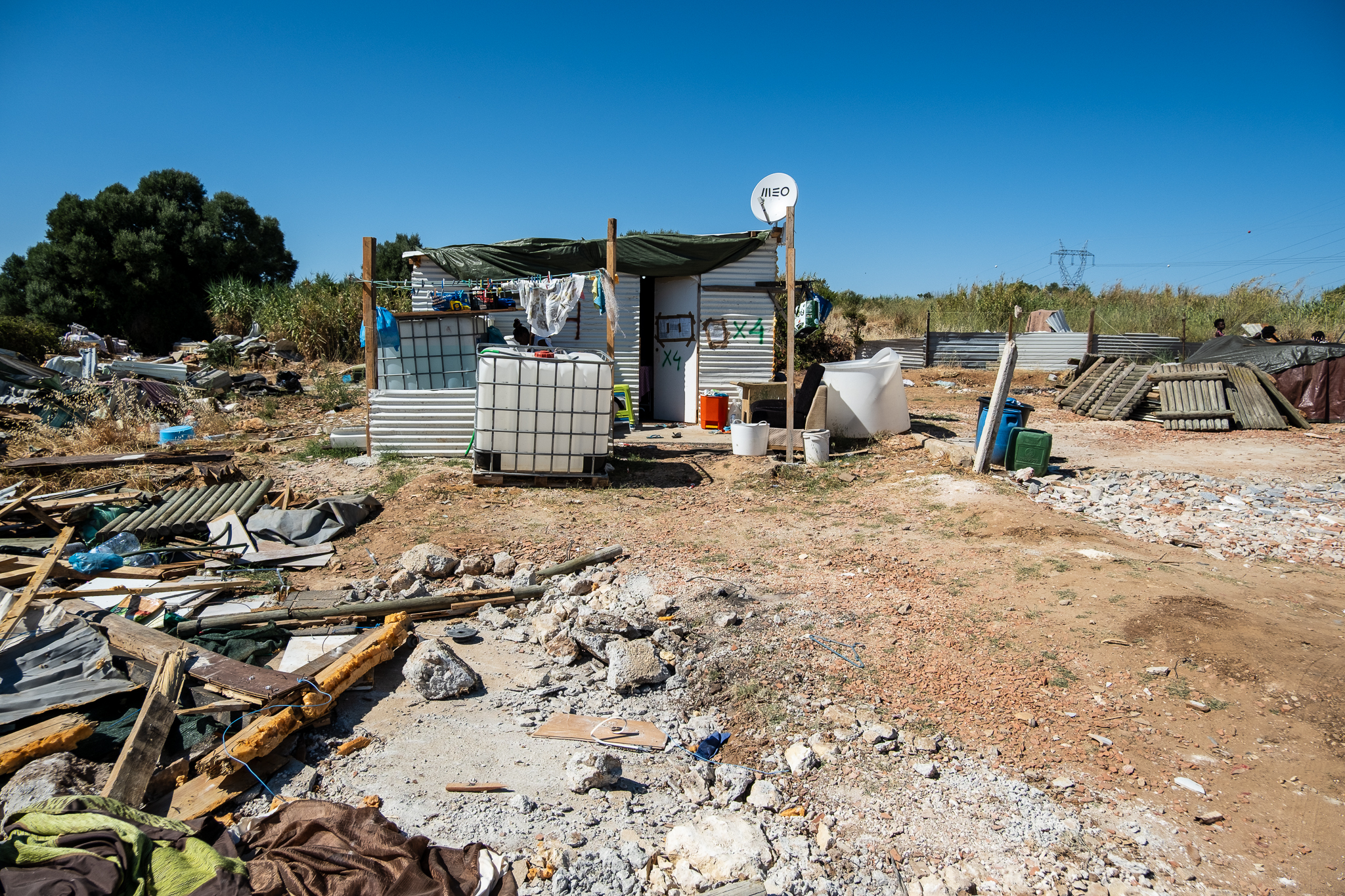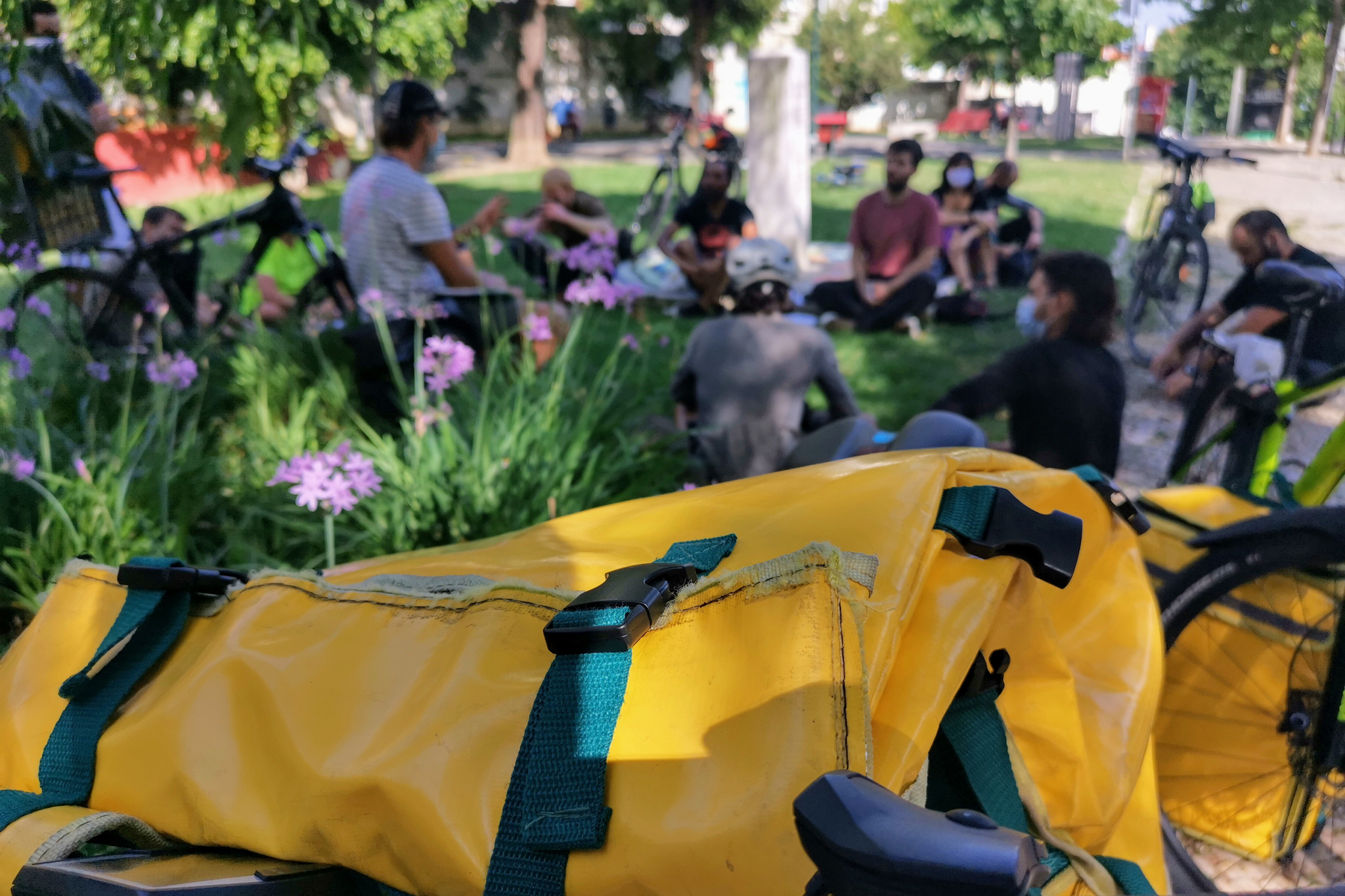
A group of cyclists got together last week to agree to create a relay cooperative in Lisbon, using the CoopCycle platform.
Platforms like Uber Eats and Glovo have massified new consumer habits and created opportunities for restaurants to expand their customer base through an articulated network of couriers ready to cover large surface area. The companies that own the digital platforms for management of the couriers gain from it, the restaurants too - although some challenge the service's policies - but it is the couriers, the main protagonists, who find themselves with precarious working conditions, without fixed incomes or social protection. They feel slaves of an algorithm that they do not control and, for this reason, a group of cyclists is now considering the creation of a cooperative.
A group got together last week to agree to create a relay cooperative in Lisbon, using CoopCycle's platform. CoopCycle is a federation that was born in France and has developed a technology solution that it makes available to cooperatives that want to use it locally. CoopCycle's software includes a fleet management system, an application for restaurants to receive order requests and an application for customers to place orders via their cell phones, and API integrations are also available, allowing CoopCycle to be integrated into a WooCommerce online store, for example.
In some French and Spanish cities, as well as in Berlin, the CoopCycle is already operating through the establishment of local cooperatives. In Lisbon, a cooperative may soon be born to also start operating with the CoopCycle system. But there is still a long way to go. Nuno Rodrigues, 30, a technology researcher, decided to take the first step and organized a meeting last week near Cicloficina dos Anjos, the largest community bicycle repair shop in Lisbon. "Let's create a relay cooperative? A CoopCycle in Lisbon". The event organized on Facebook left in the air an idea in need of body and structure, and that was what we started working on in this first meeting. The main objective was to find out if there were people interested in joining a cooperative and, from there on, organize working groups to put the idea into practice.
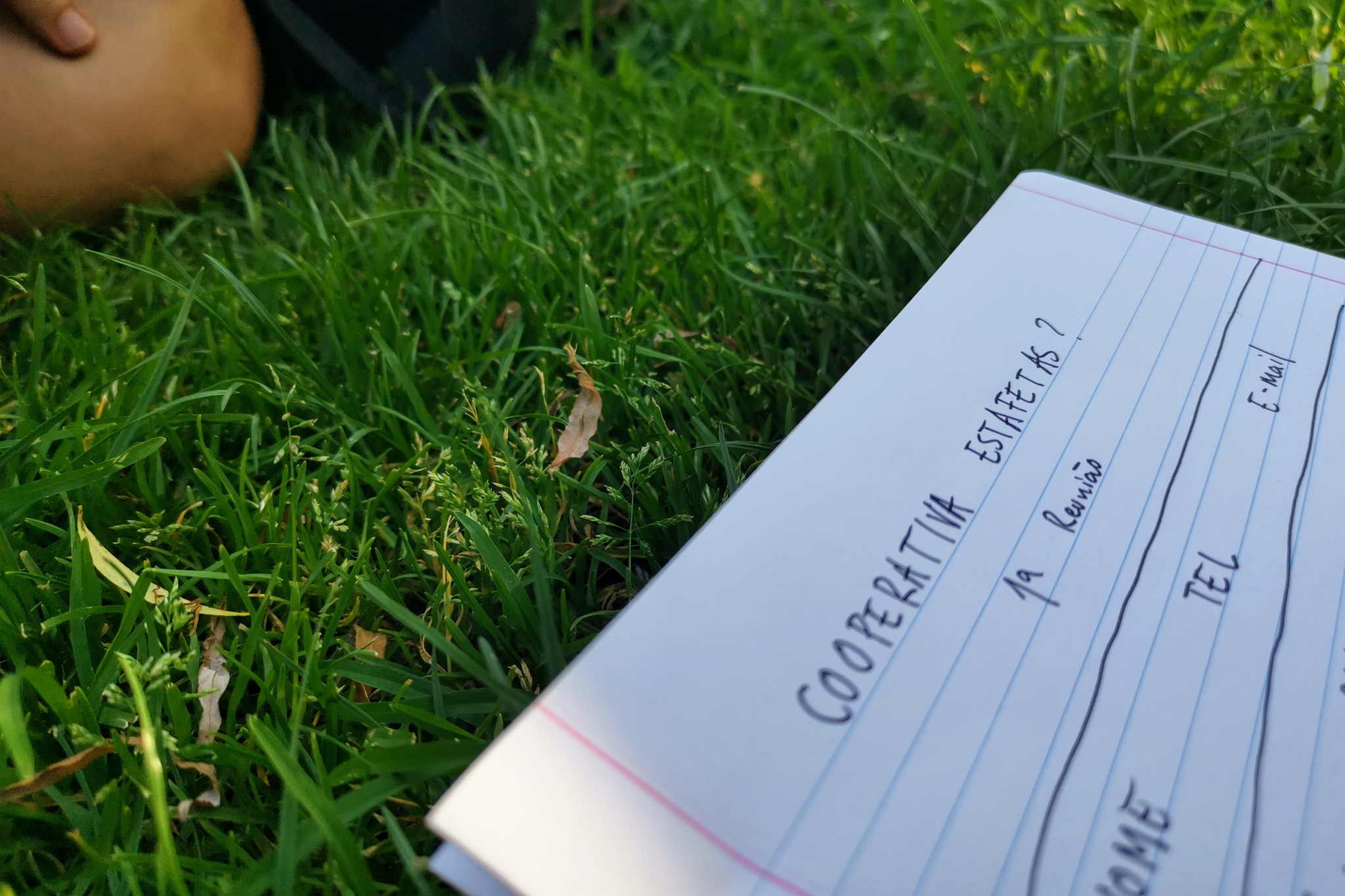
About two dozen people accepted Nuno's challenge, and he took on the leadership of the meeting as a matter of convenience, despite the fact that in a cooperative there is no verticalized structure. At that meeting, two Glovo couriers shared their experiences - nothing that was not already known. What was presented as a job to fill hours and earn extra income has become a system that subsists and proliferates based on a structure of precarious workers - some even say that the couriers working for Uber Eats and Glovo represent the new slavery. They work with backpacks on their backs, some on bikes, others on motorcycles, and those on bikes - say two Glovo cyclists - appreciate the fact that they ride a faster means of transportation. They have no hours or schedule, but they have to do the periods of greatest demand - lunches and dinners - to guarantee income. They don't have any kind of social protection or rights - time off, vacations, health insurance, or retirement. They are largely immigrants, and for some this is the only job they can and do have in the country. They are not employees of Uber or Glovo, of customers or restaurants; they are employees of technology, of an application, of an algorithm.
The two Glovo relays also pointed out how handicapThey mentioned the fact that the platform is not optimized for bicycles, contrary to what CoopCycle proposes, which means that they receive requests at 5 or 6 miles that are not as easy to do on a bike as they are on a bike, for example. They also talked about the existence of robberies, the fact that there is no longer a company office to support them, and that motorcycle couriers "think they are above" of those who commute by bicycle.
"They change the app and don't ask us anything"One of the Glovo relays that participated in the encounter complained. He and his colleague, both of Brazilian nationality, commented that they heard about the meeting through Facebook and that they knew more interested people; Nuno had also collaborated with Glovo before giving up. For some, since these applications are the only way to earn money, giving up is not a possibility, but since there is a market for couriers, they believe the solution is to give control of the platform to the couriers who make it work. That's the key idea behind CoopCycle: it allows a direct relationship between couriers, partners, such as restaurants and local businesses, and consumers, without the intermediation of a company that keeps most of the revenue.

At the meeting convened by Nuno, the main challenges were discussed. Among them, the bureaucratic issues inherent to the formal structure of a cooperative - having an associated cost, is it worth setting one up now or should one opt for an existing one? And how many stakeholders are there? Another important point is about partners: how and who to attract? Restaurants, offering lower rates than Uber Eats or Glovo? Small businesses that care about environmental issues? Food-only deliveries or other kinds of couriers? Last mile delivery of packages, i.e. within the city from a warehouse on the city's doorstep?
Other questions were raised, looking for answers in this new configuration that could not be found in the previous one: how to guarantee decent wages for the couriers? And social protection? And insurance? How to grow and gain scale? To start with a cooperative more focused on certain services and schedules and with fewer people, and grow sustainably? In this particular regard, the CoopCycleas a federation that brings together different local and autonomous cooperatives, provides some support in addition to the essential technological platform, such as a brand with notoriety in Europe, administrative support, support with local and European institutions, risk insurance, and others.
A CoopCycle as a federation is managed by a French association of the same name that since 2017 seeks "develop an anti-capitalist model based on the commons"They do not only the work of creating and maintaining the application, but also the work of lobbying policy, legal advice, and overall coordination of the different initiatives. The international cooperatives operate on a central app - which can be downloaded from Android or iOS, or accessed through the browser -, with each city having its own server managed by the local initiative - in Madrid, for example, it is the La Pájara. On the cooperative's website you can read the group's membership o motto foundational to French security, the Marxist-inspired slogan, "From each according to his means, to each according to his needs"popularized by Louis Blanc in the text Organisation du travail, published in 1839. The structure of the association is also visible online, where you can see the importance of the distributors within the cooperative.
Visiting La Pájara's website it is possible to know the outlines of the service and, in a way, anticipate what this initiative could be in Lisbon. As it is a specialized bicycle service, deliveries to this cooperative are limited to a 3km radius from the restaurant and each delivery costs 3.5 euros; on top of this margin, as one can read on the site, the cooperative keeps 25% of the order value - alluding to the fact that other applications of the kind usually charge a margin of 30%. In addition to food delivery, La Pájara also has a common courier service - delivery of objects - with a price that can be calculated on the website through a simple spreadsheet hosted on Google Sheets - a small sample of how through DIY solutions the cooperative bridges potential gaps.
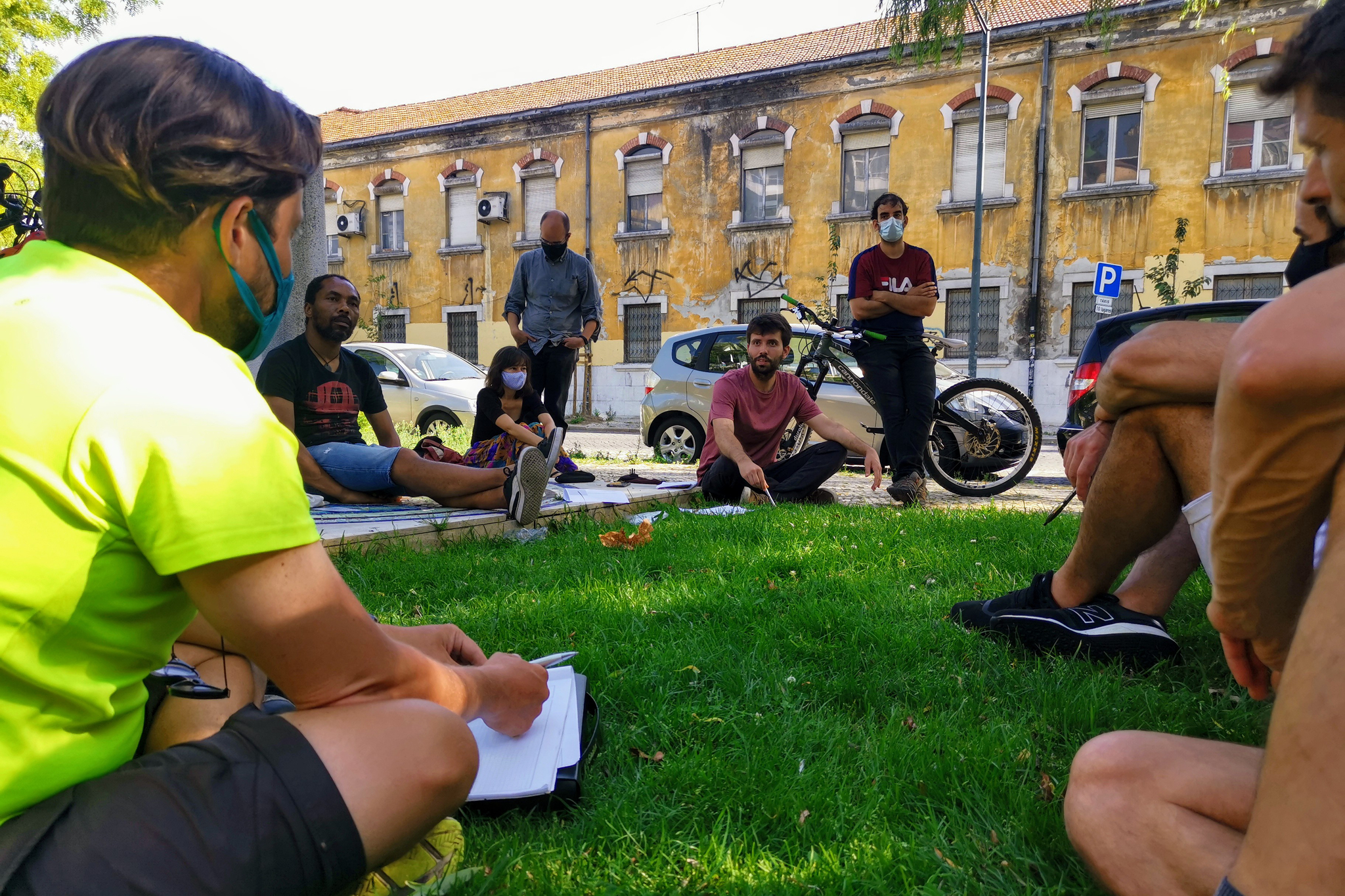
There is a lot of brainstorming that needs to be done in this way and also research, evaluating international examples of success, for example. This work is being done through different working groups that meet online through a mailing list created in Google Groups - if you are interested in taking partjust get in touch with Nuno through WhatsApp +351 912 611 396 or e-mail nmdrodrigues@gmail.com. Another meeting will be called soon; you can also find out more on Facebook.
